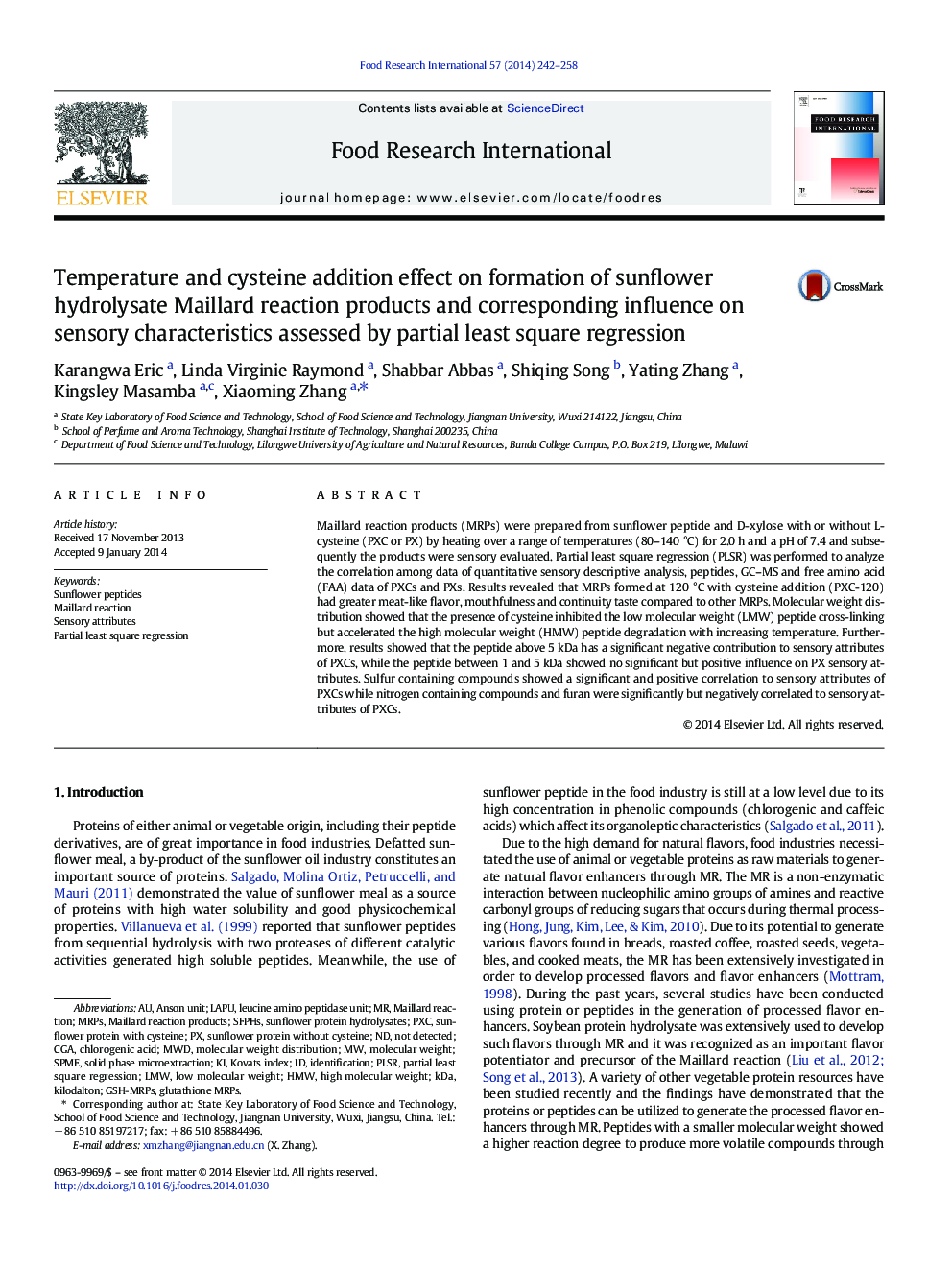| Article ID | Journal | Published Year | Pages | File Type |
|---|---|---|---|---|
| 6396817 | Food Research International | 2014 | 17 Pages |
Abstract
Maillard reaction products (MRPs) were prepared from sunflower peptide and D-xylose with or without L-cysteine (PXC or PX) by heating over a range of temperatures (80-140 °C) for 2.0 h and a pH of 7.4 and subsequently the products were sensory evaluated. Partial least square regression (PLSR) was performed to analyze the correlation among data of quantitative sensory descriptive analysis, peptides, GC-MS and free amino acid (FAA) data of PXCs and PXs. Results revealed that MRPs formed at 120 °C with cysteine addition (PXC-120) had greater meat-like flavor, mouthfulness and continuity taste compared to other MRPs. Molecular weight distribution showed that the presence of cysteine inhibited the low molecular weight (LMW) peptide cross-linking but accelerated the high molecular weight (HMW) peptide degradation with increasing temperature. Furthermore, results showed that the peptide above 5 kDa has a significant negative contribution to sensory attributes of PXCs, while the peptide between 1 and 5 kDa showed no significant but positive influence on PX sensory attributes. Sulfur containing compounds showed a significant and positive correlation to sensory attributes of PXCs while nitrogen containing compounds and furan were significantly but negatively correlated to sensory attributes of PXCs.
Keywords
Related Topics
Life Sciences
Agricultural and Biological Sciences
Food Science
Authors
Karangwa Eric, Linda Virginie Raymond, Shabbar Abbas, Shiqing Song, Yating Zhang, Kingsley Masamba, Xiaoming Zhang,
